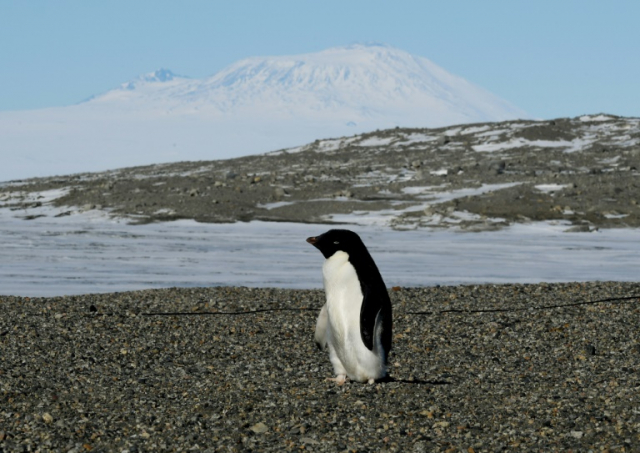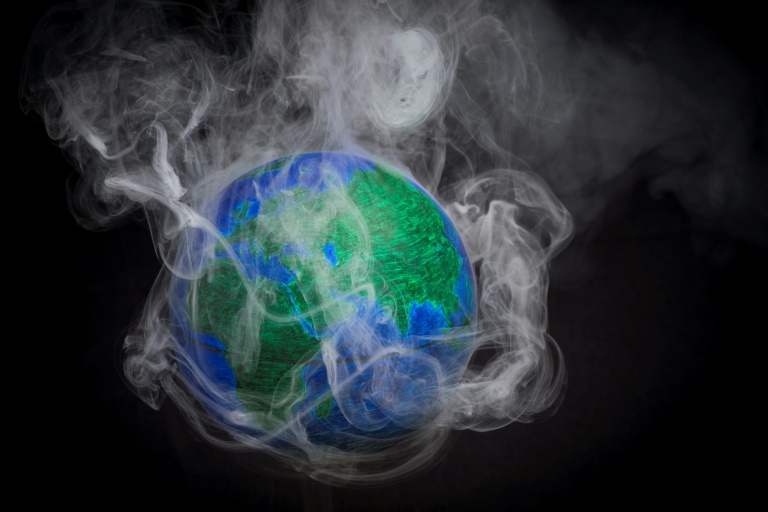Warming could threaten half of species in 33 key areas, report warns

In the west Antarctic, Adelie penguins are in decline due to sea ice melt blamed on global warming. (MARK RALSTON/AFP FILE PHOTO)
Global warming could place 25 to 50 percent of species in the Amazon, Madagascar, and other bio-diverse areas at risk of localized extinction within decades, a report warned on Wednesday.
The lower projection is based on a mercury rise of two degrees Celsius (3.6 degrees Fahrenheit) over pre-Industrial Revolution levels – the warming ceiling the world’s nations agreed on in Paris in 2015.
The highest is for out-of-control warming of 4.5°C.
“Global biodiversity will suffer terribly over the next century unless we do everything we can,” said conservation group World Wildlife Fund (WWF), which commissioned the analysis published in science journal Climatic Change.
“We must keep average global temperatures down to the absolute minimum,” the WWF also said.
The report focused on 33 so-called “Priority Places” that host some of the world’s richest and most unusual terrestrial species, including iconic, endangered, or endemic plants and animals.
They include southern Chile, the eastern Himalayas, South Africa’s unique Fynbos eco-region, Borneo, Sumatra, the Namibian desert, West Africa, southwest Australia, coastal east Africa, and southern Africa’s Miombo Woodlands, which is home to African wild dogs.
The team looked at the impact of climate change on nearly 80,000 terrestrial plant, mammal, bird, amphibian, and reptile species.
At warming of 4.5 °C, based on a “business-as-usual” scenario of no emissions cuts, the Amazon could risk the local extinction of 69 percent of its plant species.
According to the report, the Miombo Woodlands risks losing 90 percent of its amphibians, 86 percent of birds, and 80 percent of mammals.
Under the 2015 Paris Agreement, countries made voluntary pledges to curb planet-warming greenhouse gas emissions from burning coal, oil, and natural gas.
‘New normal’
But even if those pledges are met, scientists predict warming over 3°C – a recipe for disastrous climate change-triggered sea level rises, super storms, floods, and droughts.
Warming of 3.2°C would place about 37 percent of species in the so-called Priority Places at risk of local extinction, the WWF said in a statement.

Time is running out on mankind’s ability to keep global warming below two degrees Celsius, scientists say. (LIONEL BONAVENTURE/AFP FILE PHOTO)
“Even with the emissions cuts pledged under the Paris Agreement, temperatures that were extreme in the past are set to be the new normal in all Priority Places,” it added – in some even as early as 2030.
Limiting warming to 2°C would enable many species to continue inhabiting the areas they currently occupy, according to the report.
And if animals can move freely, meaning they are not constrained by roads, fences, or human settlements, the proportion of species at extinction risk at warming of 2°C drops from 25 to 20 percent.
The report comes ahead of a major meeting of the Intergovernmental Science-Policy Platform on Biodiversity and Ecosystem Services (IPBES) in Medellin, Colombia, where scientists and governments will release five assessments of the state of biodiversity.
Extinction is not simply about the disappearance of species, explained the WWF, “but about profound changes to ecosystems that provide vital services to hundreds of millions of people.”
Job- and revenue-generating tourism would suffer greatly if species disappear, and as-yet-undiscovered medicines from plants forever lost, the group also said.
“Put simply, we have to stop burning fossil fuels,” the WWF stressed. /kga














